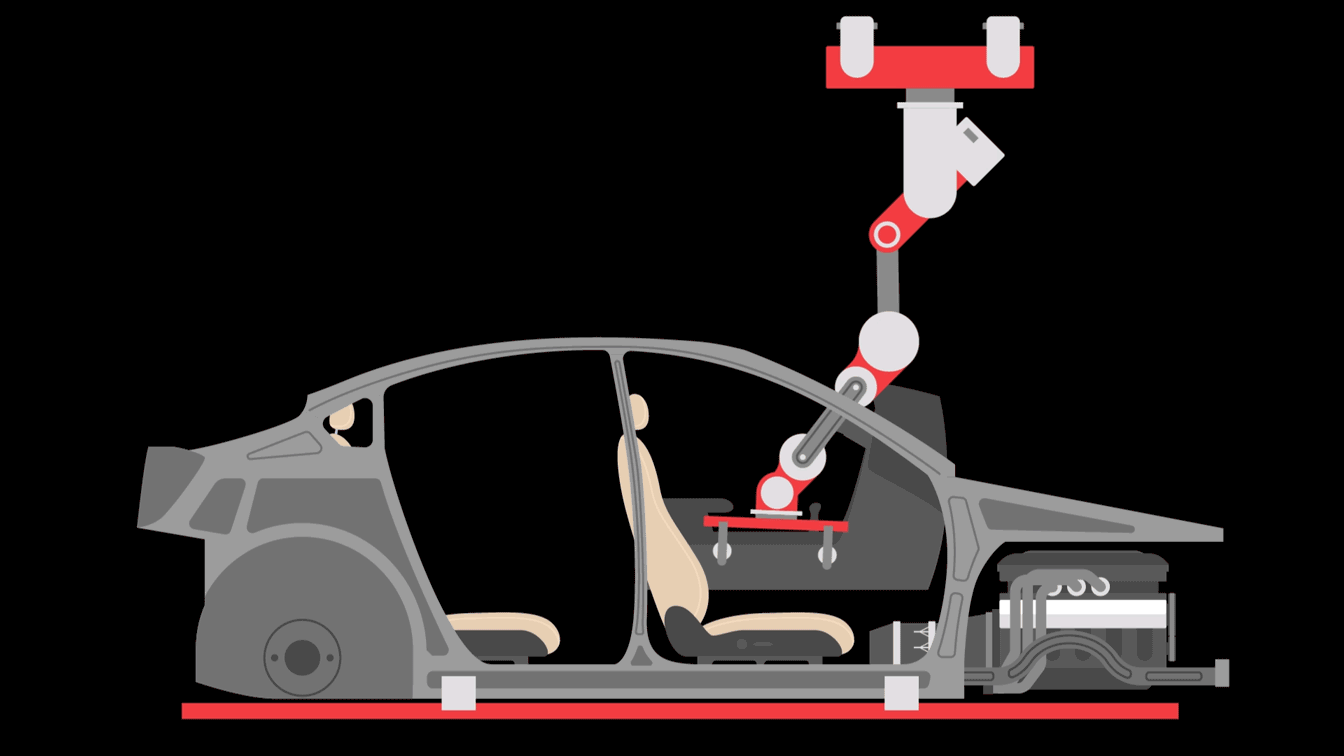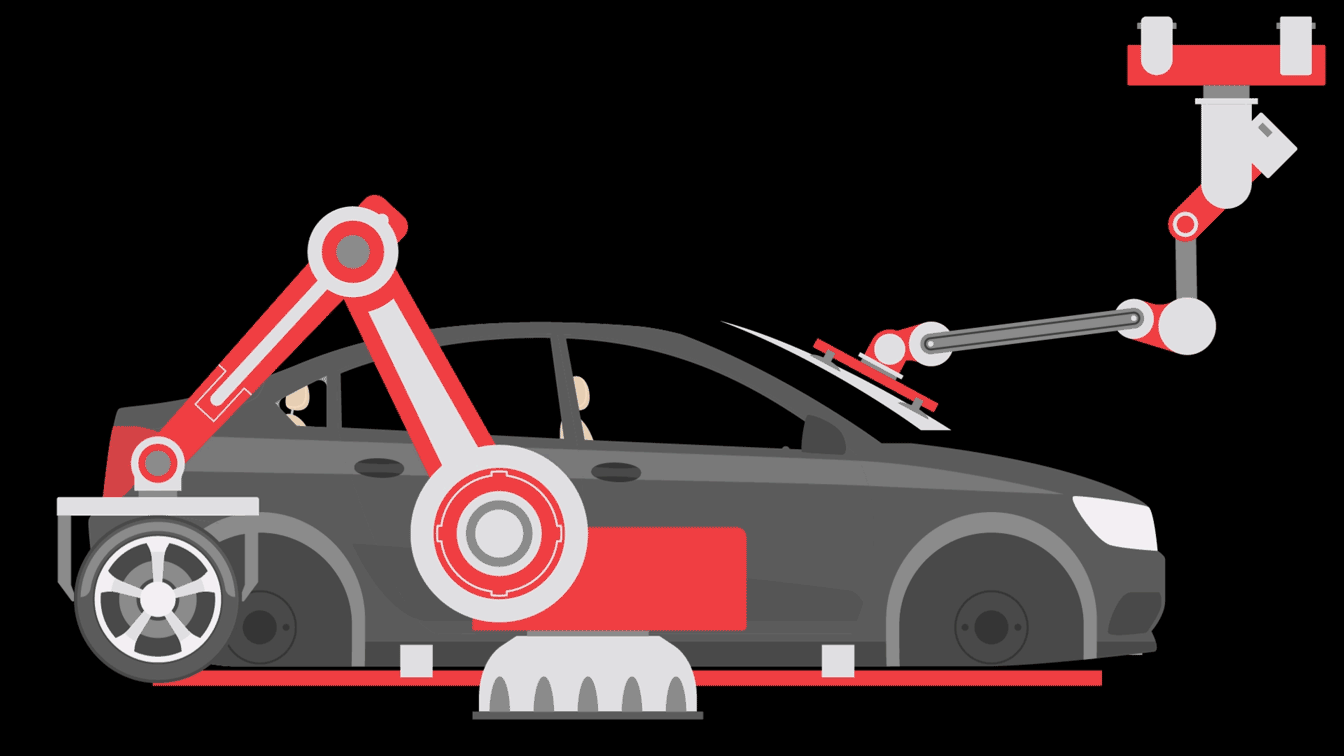The automotive industry is witnessing a technological and transformative revolution. Electric mobility and digitalisation have grown exponentially to gain prominence in the automotive sector in the last decade, so much so that the largest value pools by 2030 are now expected to be Software and EVs. Artificial Intelligence (AI) technology is an essential segment of digitalisation and has existed in the form of autonomous driving, predictive services, and in-car personalisation features for quite some time now.
The billion-dollar question though is how can Generative AI (GenAI) catalyse a transformative revolution in the electric mobility sector leveraging its novel capabilities to build predictive models, develop bespoke services, optimise processes across the value chain and much more.
GenAI can optimise and redefine the product and user journey across the electric mobility value chain
Several early movers are exploring the GenAI technology to gain a competitive advantage. Toyota, Audi, Faraday Future, BMW, and Mercedes - all have stepped up efforts to explore GenAI potential via collaborations with technology companies. This year's CES 2023 showcased several prototypes and announcements by global original equipment manufacturers (OEMs), primarily around vehicle design, vehicle personalisation, and driving digital experience.
The UAE Generative AI guidebook identifies GenAI as a dominant force in the future of business building. It indicated that ~ $86.9 billion of revenue was generated during 2022, and the sector is expected to grow at a CAGR of 36.2% between now and 2027. (source)
Specific to the electric mobility sector, GeneAI is expected to have a major play in some critical segments, such as:
EV battery costs to bring the inflexion point forward
Smart charging infrastructure to enable grid management
An immersive customer experience to accelerate adoption
Generative AI can redefine the journey of how an electric vehicle comes into existence and is utilised across its lifetime.
We are looking at a future where GenAI is deeply embedded in the fabric of the electric mobility value chain - shaping not just a single aspect but all stages of an electric vehicle's (EV) journey. From core research and development efforts to personal interactions with the end-user, GenAI's influence permeates seamlessly, optimising, enhancing, and personalising every interaction.

In essence, GenAI can potentially revolutionise each stage of the EV journey. Though we’ve explored just a few use cases, the potential applications are innumerable, each with the power to reshape the industry as we know it. But one thing is clear: the future of electric mobility isn’t just about new vehicles; it’s about a completely reimagined, AI-driven ecosystem that could redefine what it means to drive.
The following are some of the specific cases we have picked up to substantiate GenAI’s application.
Understanding the implementation of GenAI tech across specific use-cases in the electric mobility sector

Material Research and Development
GenAI accelerates material research and development with focus on discovery and validation of new battery material chemistries.
Data points:
Existing material databases, elemental properties, thermodynamic parameters, structural characteristics, performance criteria, electrochemical properties, known battery material compositions, synthesis methods, safety considerations, and cost factors.
How does GenAI help:
It will generate and analyse a wide range of potential battery material chemistries via machine learning algorithms. GenAI can predict material properties, evaluate performance characteristics, identify promising candidates, and expedite the discovery and validation process. This significantly reduces the time and resources required when compared to traditional trial-and-error approaches.

Generative Designing
GenAI enables designing by creation of innovative and optimised vehicle designs.
Data points:
Design specifications, performance requirements, engineering constraints, materials data, historical design data, user preferences, aerodynamics, weight distribution, structural integrity, and manufacturing processes.
How does GenAI help:
GenAI leverages provided data points to generate and explore a vast number of design possibilities and can optimise aspects of the design process, such as weight reduction, aerodynamics, energy efficiency, and structural integrity. It can enable rapid prototyping, iterative design exploration, and the discovery of innovative solutions.
Key takeaways
Accelerated discovery of novel compositions with improved energy density, stability, and cost-effectiveness; for instance, it can expedite the development of advanced battery materials, enhancing the performance, safety, and affordability of electric vehicles.
Key takeaways
GenAI empowers designers and engineers by augmenting their capabilities and enabling them to explore a broader design space, leading to the creation of more efficient and innovative electric vehicle designs
Example: Toyota is utilising Generative AI to strengthen its design capability, which helps in creating designs of futuristic vehicles at a click.

Demand Forecasting and Inventory Optimisation
GenAI optimises supply chain operations by enabling demand forecasting and inventory optimisation.
Data points:
Historical sales data, customer demand patterns, market trends, economic indicators, product specifications, production capacity, lead times, supplier data, and external factors impacting demand (e.g., promotions, seasonality, events).
How does GenAI help:
It can analyse the collected data points to forecast future demand accurately by considering various variables and using advanced algorithms. The system will identify demand patterns, seasonality, and potential fluctuations and enable companies to optimise inventory levels, anticipate demand changes, manage stockouts and overstocking, and ensure the availability of products at the right time and quantity.

In-car Personalisation
GenAI enables in-car personalisation services by generating bespoke experiences based on user inputs; enablement via Chatbot.
Data points:
User preferences, historical user interactions, sensor data from the vehicle (e.g., temperature, lighting, seating position), location data, and external factors (e.g., weather conditions).
How does GenAI help:
A user interface with GenAI-enabled Chatbot will analyse user preferences and behaviour basis on their inputs into the system. It will help to develop bespoke recommendations and services as per the user profile training model. For example, it can adjust in-car settings like temperature, seat position, and lighting based on user preferences, play preferred music or audio content, suggest nearby charging stations, or recommend personalised routes.
Key takeaways
Optimising supply chain operations by providing accurate demand forecasts, allowing companies to optimise inventory levels, minimise carrying costs, improve production planning, and increase customer satisfaction.
Key takeaways
By leveraging Generative AI, EV manufacturers and service providers can differentiate their offerings, strengthen customer satisfaction, and build brand loyalty through unique and custom in-car experiences.
Example: Mercedes-Benz cars rolled out a beta version of smart voice assisted controls using Open AI ChatGPT through Microsoft Azure OpenAI service. It will engage users in a more comprehensive manner and can enable specific customisation for them.

Intelligent Energy Management Systems
GenAI enables intelligent energy management systems across the electric vehicle value chain, optimising grid utilisation and energy distribution.
Data points:
Real-time energy demand, supply data, pricing information, grid conditions, energy storage capacity, renewable energy availability, charging station utilisation, weather data, consumer behaviour patterns, historical energy consumption data and infrastructure characteristics.
How does GenAI help:
Using advanced algorithms, it can predict energy demand patterns, identify supply-demand imbalances, optimise charging and discharging of energy storage systems, and intelligently allocate energy resources. GenAI enables effective integration of renewable energy sources, load balancing, peak shaving, and demand response management.

Traffic Control and Optimisation
GenAI will predict traffic patterns, analyse real-time data, and generate dynamic responses to enable intelligent traffic signal control, route optimisation, and congestion management.
Data points:
Real-time traffic data from cameras and sensors, historical traffic patterns, weather conditions, road network information, and even data from connected vehicles. Additionally, sources like public transportation schedules and events to enhance its predictive capabilities.
How does GenAI help:
The system will utilise historical data points, real-time data, and predictive models to predict traffic patterns well in advance. The system will be able to recommend efficient trip plans/routes for commuters, support traffic control authorities to manage emergencies, detect violators, and efficiently control traffic.
Key takeaways
Grid utilisation, reduce energy waste, and enhance overall efficiency.
Energy distribution based on real-time data and predictive analytics catering to peak demands and reducing pressure on the grid.
Example: Gridmatic is using GenAI to efficiently predict demand and plan energy distribution with increasing share of renewables and uncertain environmental and political situation.
Key takeaways
Real-Time Adaptability: optimising traffic control on the go.
Efficient Route Optimisation: optimise trip planning by analysing travel time and fuel consumption.
Scalability and Flexibility: The system can scale to handle complex traffic scenarios in large cities and adapt to future infrastructure developments.
Middle East Lens
Turning our focus to the Middle East, an upcoming electric mobility market, we find a region in transition - from an oil-based economy to a tech-driven one, aiming to safeguard future growth. Notably, the UAE has even published a Generative AI guidebook highlighting various business integration use cases. PwC has identified high-potential applications of GenAI specifically attuned to the Middle East's unique challenges and opportunities in shaping the future of mobility, which is increasingly electric. From energy-efficient vehicle design tailored for the region's hot climate to natural language processing models for in-car Arabic interactions, GenAI could rapidly become a cornerstone of the region's tech evolution.

Critical success factors
While GenAI is exciting, there are some critical success factors to make it a reality. GenAI in the EV ecosystem presents exciting opportunities for process enhancement, resource optimisation, and improving consumer experience. However, leaders across the EV ecosystem should heed to the critical factors highlighted in the following section for successful implementation of GenAI tech.

Outlook
Although the long-term trajectory of GenAI remains to be fully explored, its current applications underline its capability to revolutionise the electric mobility ecosystem. In the interplay between electrification, digitalisation, and AI, GenAI emerges as a game-changing force in short-medium term scenarios.
Harnessing GenAI can redefine businesses' operations, offering transformative possibilities across all sectors. At PwC, we help integrate GenAI and leverage the AI Factory approach across business operations, from marketing to supply chain. Our trust-by-design system ensures responsible AI governance from Day One, mitigating risks like bias and data breaches. We can upskill the workforce with "prompt engineer" roles to harness AI's full potential and offer continuous oversight through PwC's Responsible AI framework, aligning AI performance with overall business objectives. As strategies evolve, PwC's commitment to embedding GenAI in our DNA, backed by a significant $1 billion investment, ensures that our collaboration will redefine today's mobility challenges and co-create the roadmap for tomorrow's breakthroughs.










